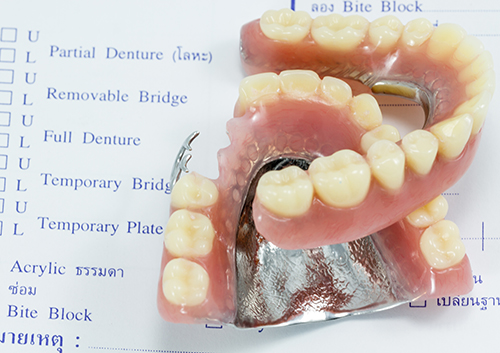Symptoms That Could Mean You Need a Root Canal
March 8th, 2023

Every tooth packs a lot of layers in a very small area. The outer, visible part of our tooth, the crown, is covered in protective enamel, and the lower root area is protected by a similar substance called cementum. Inside these very hard layers is dentin, a hard but more porous tissue which surrounds the pulp. In this central pulp chamber, we have the blood vessels which nourish the tooth and the nerves which send our bodies signals from the tooth. And if one of those signals is persistent tooth pain, you may need a procedure called a root canal.
There are a number of reasons that a tooth may cause you pain, including:
- Fracture—a cracked or broken tooth can allow bacteria to enter the pulp chamber and cause inflammation and infection
- Cavity—an untreated cavity can leave an opening where bacteria can reach the pulp of the tooth, and again lead to infection
- Gum Disease—bacteria can attack from the root area of the tooth if gum disease has become serious
- Injury—an accident or injury to a tooth can damage the nerve or the blood supply which nourishes the pulp
- Abscess—if infection is left untreated, an abscess may form under the root
While a damaged tooth may sometimes be symptom-free, usually there are signs that the pulp has been injured or infected. What symptoms should lead you to give Dr. Timm a call?
- Persistent pain in the tooth
- Long-lasting sensitivity to heat or cold
- Gum tissue adjacent to the tooth that is sore, red or swollen
- A cracked, broke, darkened or discolored tooth
- A bump on your gums that persists or keeps recurring—this might indicate an abscess
A root canal is performed by a trained dentist or endodontist. After an anesthetic is used to numb the area, the damaged tissue, including pulp, blood vessels and nerves, is removed from the pulp chamber and each root. The inside of the tooth is then cleaned and shaped, and filled and sealed with a temporary filling. The tooth is filled again permanently, usually on a second visit, and might require a crown in order to protect it from further damage.
The most painful part of a root canal is far more often the time spent suffering before the procedure than the procedure itself. Delaying action when a root canal is necessary can lead to infection, abscess, and even tooth loss. If you experience any of the symptoms mentioned above, please give our Michigan Center, MI office a call!



